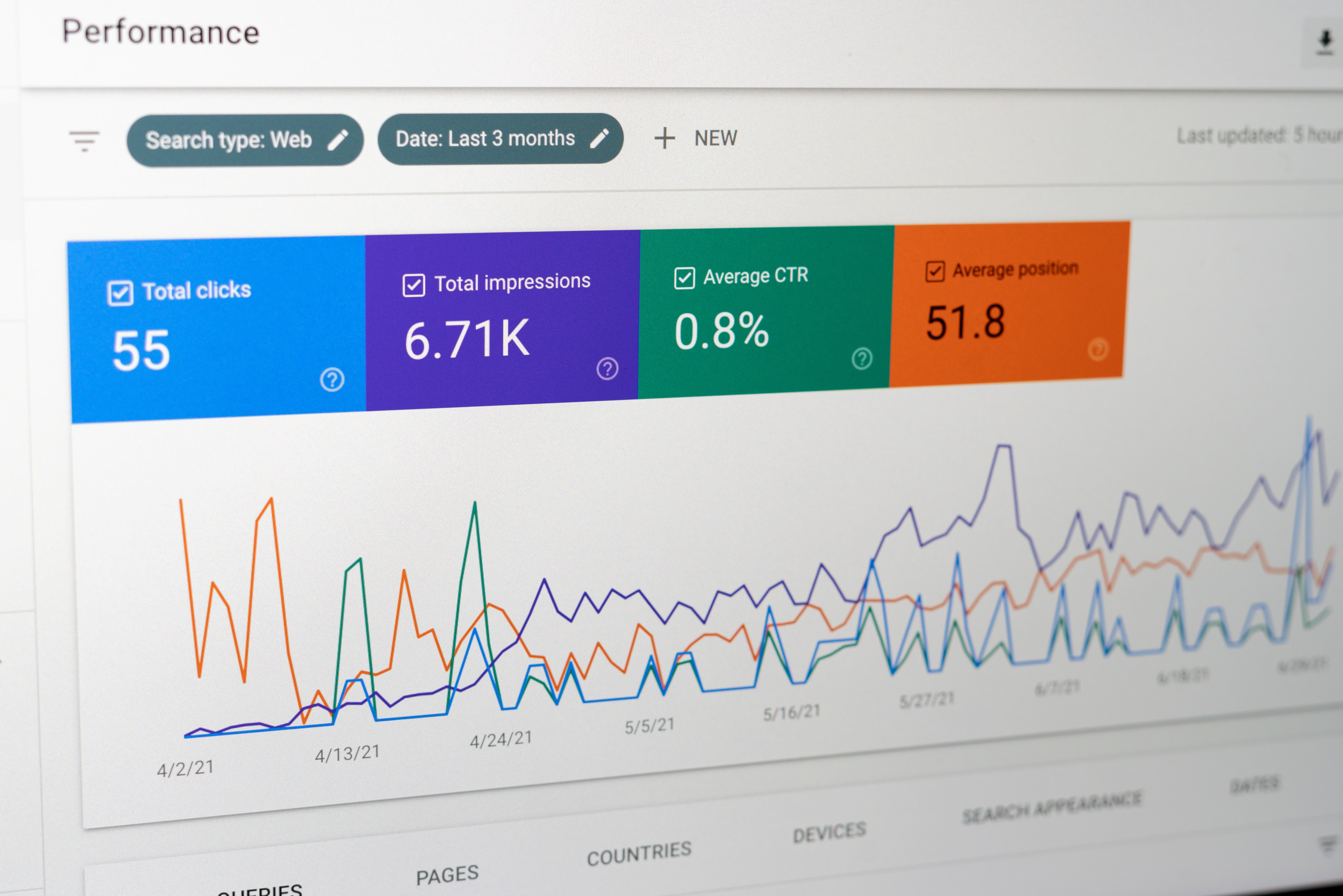Selecting the right keywords for your Google Ads campaign is key to reaching your target audience and optimizing your PPC campaign performance. If you use keywords that don’t correspond to your users’ searches, you will end up wasting money.
In this article, I will go through the different keywords: broad match keywords, phrase match keywords, and exact match keywords and guide you through when it’s appropriate to use each of these match types, depending on what your goal is with your PPC campaign.
Learn more about Google ads keywords and finding the right keyword balance in this YouTube video. Don’t forget to subscribe to the YouTube channel for more marketing and ads tips.
Why Are Google Ads Campaigns So Important?
There is a reason why professional advertising agencies do well today. Ranking high on Google search queries is important for all businesses no matter company size – this includes large corporate organisations and small businesses. Google Ads is an excellent tool whether you’re trying to sell a product or service or want more traffic to landing pages or eCommerce shops.
Most users never scroll past the search results on the first page, which means that if your business isn’t among them, you will receive a lower volume of traffic and fewer click-throughs.

In fact, 36% of all clicks will be on the first result after a Google search. Over 40% of clicks are then distributed throughout the other search results on the first page. This means that less than 30% of users would look past the first page of search results.
How Can Google Ads Help You Rank High For Search Queries?
The first few results after a Google search are Google Adverts where businesses have paid to be displayed when a user searches for a particular keyword. This is not only good from an SEO perspective, but it also helps increase your sales and activities, by converting traffic into conversion.

However, learning how to select certain keywords and using them in your ad copy and ad groups is essential if you want to increase your conversion rate.
What Are Google Ads Groups?
By organizing your Google campaigns into ad groups, you can have one or more ads grouped into a theme when running separate campaigns. Apart from having your ads organized by different themes, you can also organize your ads in categories such as the product or service your business is providing.
The campaigns in an ad group use the same budget and settings, including the target location and language. The benefits of ad groups are that you can pause a specific keyword if it’s not performing as well as you had hoped, set budgets based on groups rather than specific ads, and target different Google networks.
Google advertising agencies typically have extensive experience in getting you as a business owner the results you want to see from your paid ads.
If you don’t feel comfortable experimenting with keywords and ad spending (that is unavoidable when working with Google ads!) try reaching out to a Google advertising expert to inquire about the solutions available for your business goals.

How Many Keyword Types Are There?
The keywords you should use in your ads campaigns should match the terms used in searches by your target audience. There are five keyword match types that you can use in your Google Ads campaigns to increase conversion volume. These keyword types are:
Broad match keywords
Modified broad match keywords
Phrase match keywords
Exact match keywords
Negative match keywords
Let’s go through each of the keyword match types and establish which is the best for the type of Google Ad and ads group you are running.
Broad Match Keywords in Google Ads
Broad match keywords are the default match type in Google Ads. As broad-range keywords are the default keyword type, you can simply insert the broad match keyword into the keyword field in your campaign settings.
When using broad match keywords for search campaigns, it will display your ad on any user searches that are related to your broad match keyword. This includes keywords with the same meaning as well as singular and plural forms.
The benefit of broad match keywords is that they have the widest reach since you can receive hits even if a user does not use the words or phrases you have input as your broad match keywords. The downside of the broad match is that you will also get irrelevant matches for users who are not interested in your services or not ready to start spending money.
When Should You Use Broad Match Keywords?
Using broad-match keywords on Google can be a good idea for campaign starters and those who don’t already have keyword lists to use. Broad keywords used for reaching a wide audience are helpful when trying to determine who your potential customers are and to get an overview of your conversion data, as well as conversion rate and conversion volume.
So, if you’re new and have a small business and need to find and discover which keywords are relevant, embrace broad match keywords, but keep evaluating their performance to get the most out of your money.
A word of caution, focusing on only a broad match keyword can decrease your quality score as your campaign will target a wide quantitative range, rather than a qualitative range.
In the long run, you should move on from using only broad match keywords since they will decrease your quality score as your campaign will cost per click, rather than pay per click.
Broad Match Modified Keywords
By using broad match modified, you can narrow down the search queries and filter out negative broad match keywords. You can, for example, state that a certain word or phrase is mandatory.
This gives you more control compared to the default match type since you can control matches more closely to relevant searches and keyword terms. At the same time, you retain the benefit of including synonyms, related words and other relevant search words in different word order, and therefore, when you embrace broad match in a modified form, you can still get broad matches and reach a large search volume.
Phrase Match Keywords
By adding quotation marks to your keywords, you create phrase-match keywords. This type of keyword narrows down the results of search queries to only the specific keyword phrase you have selected. In other words, your Google ad will be displayed for any search queries that include this phrase in a sentence or question.
In 2014, Google updated their phrase match type to also match for keyword searches that are not an exact match with the specific phrase you determined.
This means that as long as Google considers the search term to be closely related to your phrase, Google can change the word order in the phrase, and include plurals or synonyms to match the search query with your keyword.

When Should You Use Phrase Match Keywords?
Compared to broad match keywords, phrase matches are more targeted to relevant searches which helps you reach a wider audience than exact match keywords.
Broad match keywords most certainly give you irrelevant traffic, while exact keywords mean you lose out on a large search volume due to limitations, so the phrase match type is a good middle-ground in market audience.
Phrase match keywords are, among other things, excellent when determining the context of search queries, learning new keywords, and finding similar search terms.
Exact Match Keywords
If accuracy and relevance are important for your conversion funnel, you might want to consider using exact matches. Using exact matches is done by using square brackets around your exact match terms. By doing so, you can target an exact match group through search terms and queries exactly as they are typed by people searching for something on Google.
The overall traffic will be considerably lower compared to a single broad match keyword, but the traffic that you do get will be of a higher quality to your product or services. This also means that your conversion rate will be much higher with exact matches than with other match types if the keywords you use match the market audience.

The cost for exact match keywords is normally higher than other forms of keyword matches, so make sure you have adequately tested the keyword to match what your target audience is searching for. Essentially, only choose keywords you know work with exact matches.
When Should You Use Exact Match Keywords?
Exact and phrase match keywords both limit the search campaigns to more relevant traffic than broad match keywords. While exact matches are the most limiting of the two, it will provide you with the most targeted approach.
The exact keyword match type is a good option when you have already experimented with broad searches using a large search volume and now have an optimised keyword list you can rely on. Exact matches allow you to truly pinpoint a specific term or key phrase that you know your customers search for when they are ready to take action.
Negative Match Keywords
Negative match keywords can be used for all match types, the broad match type, the exact and the phrase match type. This is a way to tell Google that you want to exclude a certain keyword from the search queries. This means that your Google Ad won’t be displayed for any search term a user types into Google which includes your negative keyword.
This is an important tool in optimising your Google Ads to generate the most valuable traffic, the most useful data as well as the best conversion rate.
When Should You Use Negative Match Keywords?
As you are learning and analyzing the results of your Google campaigns, you can add negative keywords and terms. By doing so, you can filter out any unrelated traffic and improve your keywords with a balance of high-quality reach and relevant search queries.
Using negative match keywords can be seen as a type of broad match experiment where you gradually narrow down the search terms that are interesting for your ad groups. This allows you to keep the benefits of broad match keywords and the large traffic it generates, but steer the relevance in the right direction.
Final thoughts
Creating Google campaigns and optimizing them for the best results takes time and patience. You will need to test various keywords and evaluate the results continuously and make adjustments based on your findings for the best conversion rate.
Hopefully, this article brought you more insight into the different Google Ads keyword types, and when it’s appropriate to use broad match keywords versus phrase keywords and exact keywords.
The short answer is that none of these keyword match types is more correct than another for an ad group, but it entirely depends on how you use them for your Google ads.
If you find that you don’t know where to start with your first Google Ads campaign, there is always the option of hiring a dedicated Google Ads expert.
If you’d like to get help to get going with your first ad group, you can always reach out to max@snowballcreations.com who will be happy to answer any questions you might have.